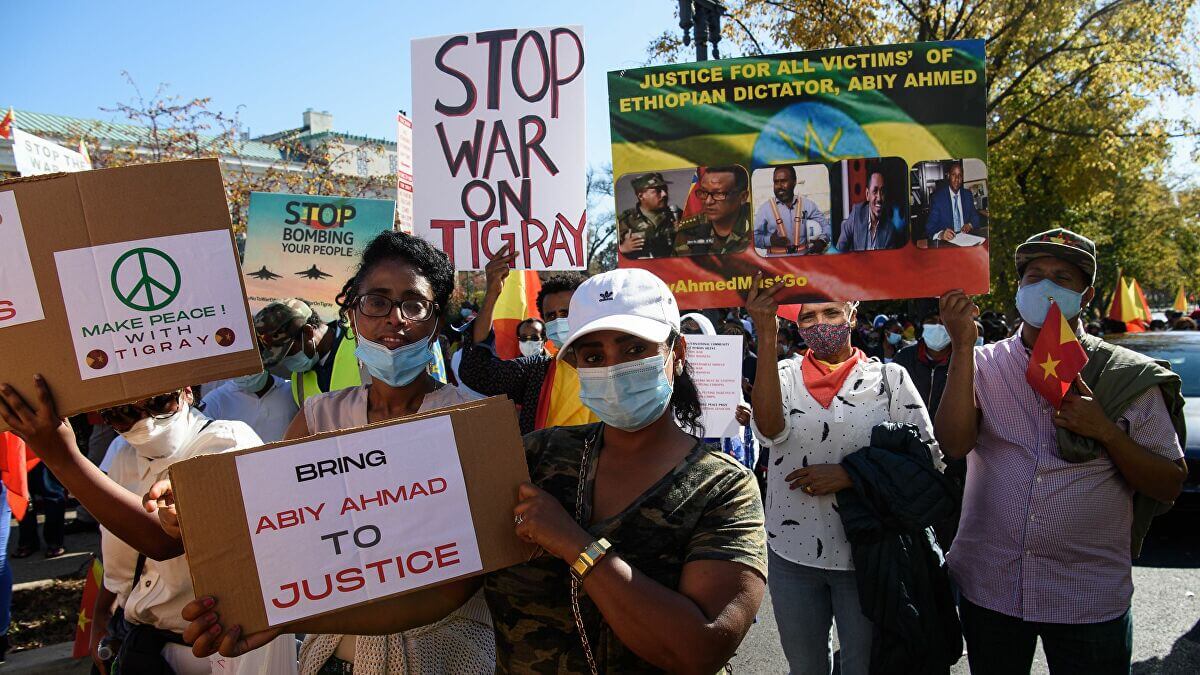Thousands of refugees fleeing deadly violence in Ethiopia’s Tigray region have crossed into neighbouring Sudan, raising concerns of a looming humanitarian crisis in the heart of the Horn of Africa. More than 7,000 people have already crossed the border, including some wounded in the fighting, and the flow of Ethiopian migrants is growing quickly, with officials expecting the number to hit as high as 200,000 if the conflict—which is now entering its second week—does not end.
Ethiopia’s Nobel Peace Prize-winning Prime Minister Abiy Ahmed launched a full-scale military offensive against the Tigray’s People Liberation Front (TPLF)— which his government regards as illegal—last week, after accusing the local power of attacking a military camp in the region and attempting to loot military assets. The TPLF has denied the allegations and criticized the PM for making up the story to justify his operation in the region.
Alongside the military operation, the Council of Ministers has also declared a six-month state of emergency in the Tigray Regional State due to threats to the “constitutional order, public peace and security”. This has meant that the roads have been blocked, airports have been seized and even the regional communication has been cut down, adversely impacting the ongoing humanitarian operations in the area.
Sajjad Mohammad Sajid, the United Nations’ humanitarian chief in Ethiopia, said on Tuesday evening that long lines had appeared outside bread shops and supply-laden trucks are stuck at the province’s borders. With almost two million people now isolated in the province—more than 400,000 of whom are food insecure—Sajid said that there were severe shortages of food or fuel or both, making things “very, very difficult”, especially given the fact that the issue may not be resolved any time soon. The conflict has also left more than 1,000 people of different nationalities stranded in Tigray. On the Sudanese side, local authorities have said that they are preparing a refugee camp to house about 20,000 fleeing Ethiopians.
Though the UN and other nations have demanded a ceasefire, the warring parties have shown no interest in engaging in negotiations, with the TPLF arguing that the current administration has “neither the capabilities nor the legitimacy to lead such a dialogue”. Meanwhile, the Ethiopian leadership has said that dialogue with regional leaders would only take place once the TPLF has been disarmed and members brought to justice.
However, PM Abiy on Tuesday vowed to speedily end the fighting, and dislodge the TPLF leadership. He said that his government’s military campaign will end “as soon as the criminal junta is disarmed, legitimate administration in the region restored, and fugitives apprehended and brought to justice,” noting that all of these objectives were “rapidly coming within reach”.
Thousands of Refugees Cross into Sudan to Flee Violence in Ethiopia
More than 7,000 have already crossed the border, and the number is expected to grow quickly.
November 12, 2020

SOURCE: Sputnik Internatinational
